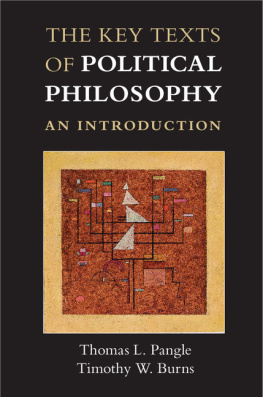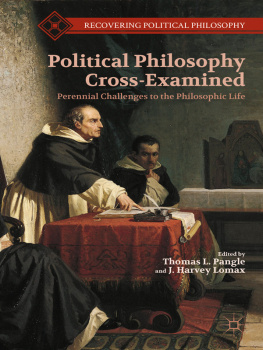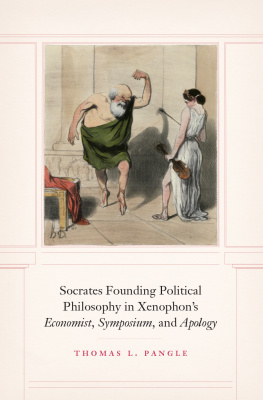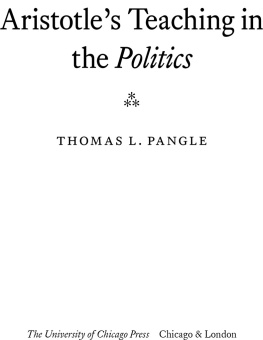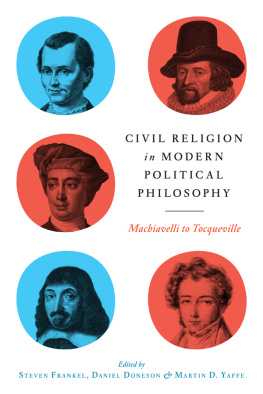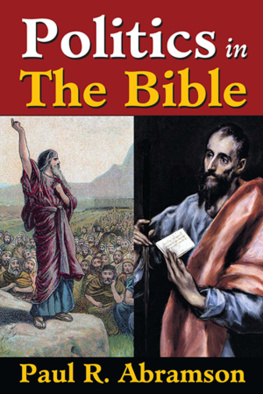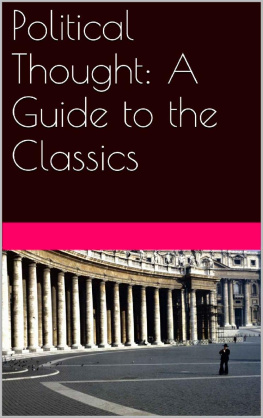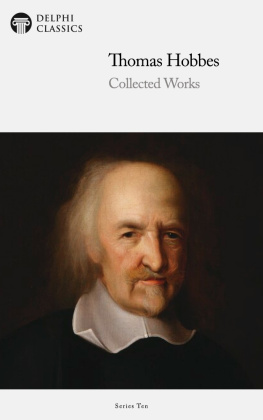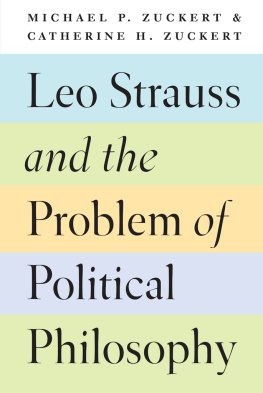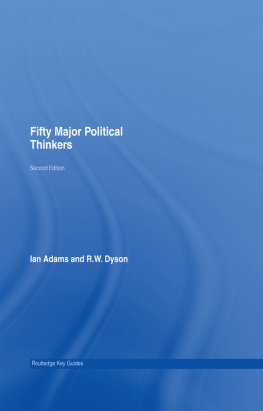The Key Texts of Political Philosophy
This book introduces readers to analytical interpretations of seminal writings and thinkers in the history of political thought, including Socrates, Plato, Aristotle, the Bible, Thomas Aquinas, Machiavelli, Bacon, Hobbes, Locke, Montesquieu, Rousseau, Tocqueville, Marx, and Nietzsche. Chronologically arranged, each chapter in the book is devoted to the work of a single thinker. The selected texts together engage with two thousand years of debate on fundamental questions, which include: What is the purpose of political life? What is the good life, for us as individuals and for us as a political community? What is justice? What is a right? Do human beings have rights? What kinds of human virtues are there and which regimes best promote them? The difficulty of accessing the texts included in this volume is the result not only of their subtlety but also of the dramatic change in everyday life. The authors shed light on the texts vocabulary and complexities of thought and help students understand and weigh the various interpretations of each philosophers thought.
- Contains accessible interpretive essays on the greatest texts in the history of political thought, from Plato to Nietzsche.
- Includes key passages plus a succinct discussion that glosses the text, examines later-day interpretations, and guides students in forming their own interpretations.
- Allows students to learn from, rather than only about, each thinker, and to apply their thought to the present day.
THOMAS L. PANGLE holds the Joe R. Long Chair in Democratic Studies in the Department of Government and is codirector of the Thomas Jefferson Center for the Study of Core Texts and Ideas at the University of Texas at Austin.
TIMOTHY W. BURNS is Professor of Government at Baylor University.
32 Avenue of the Americas, New York, NY 10013-2473, USA
Cambridge University Press is part of the University of Cambridge.
It furthers the Universitys mission by disseminating knowledge in the pursuit of education, learning, and research at the highest international levels of excellence.
www.cambridge.org
Information on this title: www.cambridge.org/9780521185004
Thomas L. Pangle and Timothy W. Burns 2015
This publication is in copyright. Subject to statutory exception and to the provisions of relevant collective licensing agreements, no reproduction of any part may take place without the written permission of Cambridge University Press.
First published 2015
Printed in the United States of America
A catalog record for this publication is available from the British Library.
Library of Congress Cataloging in Publication data
Pangle, Thomas L.
The key texts of political philosophy : an introduction / Thomas L. Pangle,
University of Texas at Austin, Timothy W. Burns, Baylor University.
pages cm
Includes index.
ISBN 978-1-107-00607-2 (hardback) -- ISBN 978-0-521-18500-4
1. Political science Philosophy. I. Burns, Timothy, 1958 II. Title.
JA71.P3383 2014
320.01dc23 2014015719
ISBN 978-1-107-00607-2 Hardback
ISBN 978-0-521-18500-4 Paperback
Cambridge University Press has no responsibility for the persistence or accuracy of URLs for external or third-party Internet Web sites referred to in this publication and does not guarantee that any content on such Web sites is, or will remain, accurate or appropriate.
Acknowledgments
A section of Chapter 4, The Bible, was previously published as The Hebrew Bibles Challenge to Political Philosophy: Some Introductory Reflections by Thomas Pangle, in Political Philosophy and the Human Soul edited by Michael Palmer and Thomas Pangle. We wish to thank Rowman and Littlefield Publishers for their kind permission to reprint. We also wish to thank the Earhart Foundation for providing generous summer funding during the composition of this book.
Introduction
What is political philosophy? Why is its study important? And why should political philosophy be introduced as it is in this volume through a sustained encounter with a very few old books, whose authors lived in civic cultures profoundly unlike our own? Why do we not begin from books and thinkers of our own time? How will we get at the problems that are most important for us today through reading long-dead authors? Are not the important issues of politics those that are pressing, urgent, the burning issues of the day? What is in these old books that could be more significant?
The answer is simple. The books that we will be studying embody humanitys most powerful attempts to grapple with the truly fundamental and enduring questions about human existence. What are the ultimate ends or purposes of our lives, as individuals and as political communities? What constitutes human fulfillment and flourishing? Can security, health, prosperity, and entertainment be all that our existence is for? Or must not these goods be understood as, at best, a foundation and means or opportunity, for higher activities and concerns? To speak of the higher is to speak of that which has and bestows dignity ; what is it that gives our existence dignity? What is it that makes this particular life-form a human life deserving of special respect or even reverence? What makes us different in rank from the other animals, so that we feel that we are free to eat and to enslave them, but not our fellow humans?
We express our respect for humanity by speaking of human rights. Respect for human rights is a major dimension of what we call justice, or righteousness. What is the full meaning of justice ? Most obviously, we discern two massive aspects: Justice means distributing to each and every person what is fairly due; including but going beyond the former justice means caring for the common good of society as a whole. On what basis does justice, in both these senses, make a claim on us, as individuals, such that we feel obliged (and we think that others ought to feel obliged) to respect and to care for justice, even or especially when this entails substantial personal cost sometimes even the ultimate sacrifice of ones life? Is not this distinctly human capacity, for deliberately subordinating ones personal good to what one believes to be right, a major dimension of what dignifies human life, as a life that is more than that of a very clever animal? Is justice not a virtue an admirable quality of character, a defining trait of a truly good person and of a healthy soul? But does being just, then, involve not so much self-denial as, instead, self-enhancement: Is being just not a crucial component of ones own truly greatest personal good? Or is there not a puzzle here, at the heart of our conception of the value of justice a puzzle as to the sense in which justice is good, and for whom it is good? Does not a similar puzzle lurk in our conception of the value of other moral virtues, such as courage and generosity or charity? Do not these virtues entail selflessness or self-transcendence, while yet simultaneously being essential to self-realization in full dignity? What exactly does each of these moral virtues entail, and how are they related to one another and to justice? To what extent should the civic common good entail the communal cultivation of these moral virtues?

